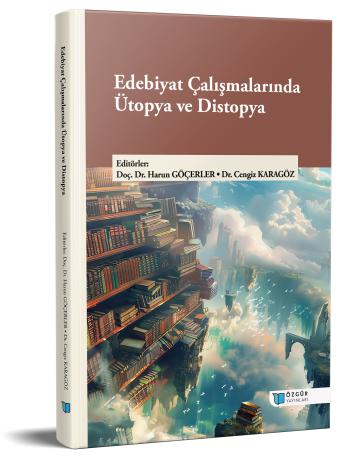
Exploring the Utopian Body and Self in Contemporary Lyrical Poetry
Chapter from the book:
Göçerler,
H.
&
Karagöz,
C.
(eds.)
2025.
Utopia and Dystopia in Literary Studies.
Synopsis
Because of issues such as the economic, climate, and social crisis – along with the issue of austere regimes – a tendency to reach for utopia is also common. Starting with Plato’s Republic, human’s strive for the ideal became prominent in literature with Thomas Moore’s Utopia. Utopia could be ideal, idyllic, philosophical, or fictional, yet the shifts in of approach in philosophy and literature, along with other social sciences, the concept of utopia is still prevailing and universal. While some people prefer to tackle the hard situations through philosophical debates, some dwell on the human imagination and creativity. Lyrical poetry alters its addresses and form along with the other literary genres throughout the literary history. Expressing one’s feelings and ideas can be carried out through various means, but this chapter will be investigating how lyrical poetry serves as a ground for poetic expression and somatic behaviour are transitive. So, it is my aim to approach some contemporary examples of lyric poetry from the perspective of the corporeal body and well-being relation. This study will explore the concept of utopian body in the poems of George Oppen, Louise Glück, Gregory Orr, Ersan Yaşar Gürcan, and Ada Limón, and attempt to analyse how these poets refer to the utopia in their poems. My examination suggests that while utopia as an environment can be experienced physically through the body, the mental perception is also bound to this experience, thereby creating two planes that are intertwined, which I refer to as ‘somatopia’. The organic plane of consciousness – the body – is bound to undertake relations with the outer world, yet it also has the opportunity to turn into the utopic plane to take refuge and find peace on a plane of consciousness.

